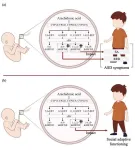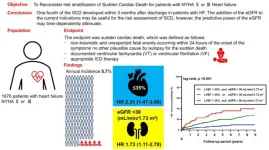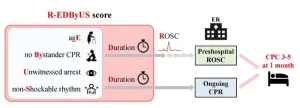Autism spectrum disorder (ASD) is a neurodevelopmental disorder that affects learning capability and social behavior of people. Over the past few decades, awareness regarding ASD has increased, especially regarding its prevalence and effect on the lives of people diagnosed with ASD. However, several aspects related to ASD are not well understood, leaving much to be explored.
Although the exact causes of ASD are unclear, currently available evidence points to neuroinflammation as a major factor. Several studies in mouse models of ASD have hinted at the importance of polyunsaturated fatty acids (PUFA) and their metabolites during pregnancy in playing a key role in ASD development. PUFA metabolites regulated by the cytochrome P450 (CYP) affect fetal development in mice causing impairments closely linked to ASD symptoms. However, it is still unclear if the same is true for humans and needs further investigation.
To address this knowledge gap, a research team from Japan consisting of Professor Hideo Matsuzaki from the Research Center for Child Mental Development, University of Fukui, Dr. Takaharu Hirai at the Department of Psychiatric and Mental Health Nursing, School of Nursing, University of Fukui and Dr. Naoko Umeda from the Department of Maternal and Child Health Nursing, School of Nursing, University of Fukui, analyzed the CYP-PUFA levels in neonatal umbilical cord blood samples. Their study, published on July 23, 2024 in Psychiatry and Clinical Neurosciences, sheds light on the possible causes of ASD.
Sharing the motivation behind their study, Prof. Matsuzaki explains, “CYP metabolism forms both epoxy fatty acids (EpFAs), which have anti-inflammatory effects, and dihydroxy fatty acids, or ‘diols,’ which have inflammatory properties. We hypothesized that the dynamics of CYP-PUFA metabolites during the fetal period, that is, lower EpFA levels, higher diol levels, and/or increased EpFA metabolic enzymes would influence ASD symptoms and difficulties with daily functioning in children after birth.”
To test this hypothesis, the researchers investigated the link between PUFA metabolites in umbilical cord blood and ASD scores in 200 children. The cord blood samples had been collected immediately after birth and preserved appropriately, whereas ASD symptoms and adaptive functioning were assessed when the same children were six years old, with the help of their mothers.
After careful statistical analyses of the results, the researchers identified one compound in cord blood that may have strong implications for ASD severity, namely 11,12- dihydroxyeicosatrienoic acids (diHETrE), a dihydroxy fatty acid derived from arachidonic acid.
“The levels of diHETrE, an arachidonic acid-derived diol, in cord blood at birth significantly impacted subsequent ASD symptoms in children and were also associated with impaired adaptive functioning. These findings suggest that the dynamics of diHETrE during the fetal period is important in the developmental trajectory of children after birth,” highlights Prof. Matsuzaki.
More specifically, the researchers found that higher levels of the molecule 11,12-diHETrE had an impact on social interactions, whereas low levels of 8,9-diHETrE impacted repetitive and restrictive behaviors. Moreover, this correlation was more specific for girls than for boys. This newfound knowledge could be crucial in understanding, diagnosing, and potentially preventing ASD. By measuring diHETrE levels at birth, it may be possible to predict the likelihood of ASD development in children.
“The effectiveness of early intervention for children with ASD is well established and detecting it at birth could enhance intervention and support for children with ASD,” muses Prof. Matsuzaki. He also adds that inhibiting diHETrE metabolism during pregnancy might be a promising avenue for preventing ASD traits in children, although more research will be needed in this regard.
In conclusion, these findings open a promising avenue for researchers unraveling the mysteries surrounding ASD. We hope that enhanced understanding and early diagnostics will be able to improve the lives of people with ASD and their families.
About University of Fukui, Japan
The University of Fukui is a preeminent research institution with robust undergraduate and graduate schools focusing on education, medical sciences, engineering, and global and community studies. The university conducts cutting-edge research and strives to nurture human resources capable of contributing to society on the local, national, and global level.
Website: https://www.u-fukui.ac.jp/eng/
About Professor Hideo Matsuzaki from University of Fukui, Japan
Professor Hideo Matsuzaki obtained an MD degree from Oita Medical University in 1994 and a PhD degree from Osaka University in 2003. He is the Director and Professor of the Research Center for Child Mental Development at University of Fukui, and concurrently serves as vice dean of the United Graduate School of Child Development at Osaka University. His work over the past two decades has mainly focused on the elucidation of autistic pathophysiology by integrating basic neurobiology, genetics, metabolism, and behavioral science with translational research on autism spectrum disorders. Prof. Matsuzaki is a member of several respected scientific advisory boards and serves as the president of the Japan Brain Science Society.
Funding information
This work was supported, in part, by KAKENHI from the Ministry of Education, Culture, Sports, Science and Technology of Japan (19K21754, 22H00492). This work was also partially supported by the Life Science Innovation Center, the University of Fukui, and the Center of Developmental Education and Research.
Media contact:
Naoki Tsukamoto
University of Fukui PR center
sskoho-k@ad.u-fukui.ac.jp
END







